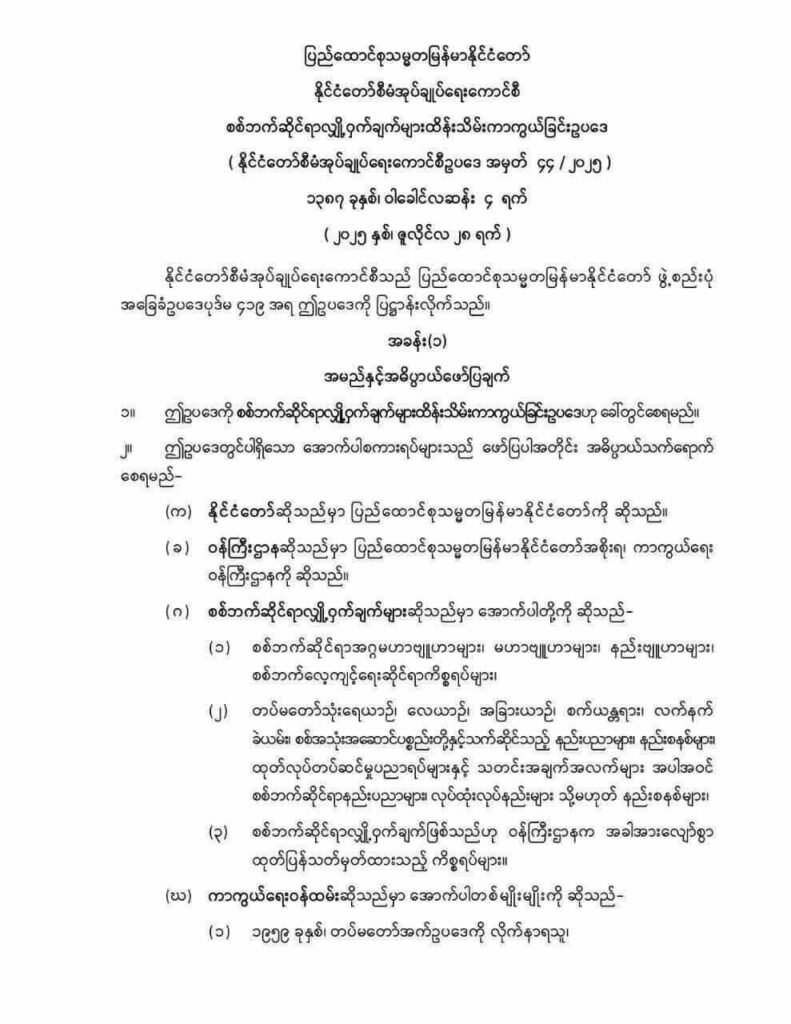Junta’s New “Security Law” Aims to Criminalize Defectors and Silence Resistance
July 29, 2025
HURFOM; In a move widely condemned by civil society and local communities, the military junta released a new law on July 28, 2025, under the pretext of regulating “security-related activities” in Burma. The legislation, officially titled the “Security Services Organization Law,” has raised alarm for its potential to criminalize former soldiers, suppress community defense initiatives, and further entrench military control in civilian life.
The law, issued by the junta’s Ministry of Defense, outlines harsh penalties for those allegedly misusing military-related knowledge or training, especially former junta soldiers and personnel who have since joined the Civil Disobedience Movement (CDM) or are believed to be aligned with the People’s Defense Forces (PDFs) or other resistance groups.

Local voices from HURFOM’s field documentation areas have criticized the law, calling it another attempt to silence dissent and shield the junta’s loyalists while targeting the broader public. One human rights monitor said:
“This law will give the junta more excuses to arrest former soldiers who’ve joined the people. If they claim, ‘This person is a former soldier and is now helping the PDFs,’ they’ll use this law to imprison them.”
The law also makes it significantly harder for deserters to reintegrate into civilian life. A former army defector, now working in a community security role, told HURFOM:
“If I want to work in civilian security, I now have to go back and ask permission from the junta – the same institution I fled. If I don’t, I could face up to 10 years in prison.”
Analysts also warn that this law will have a severe impact on private security companies, particularly those employing former military personnel. These firms will now be forced to avoid hiring former soldiers without junta approval—putting even more civilians out of work in an already collapsed economy.
“This law is clearly designed to protect only those who remain loyal to the military regime,” said a Mon youth activist in Ye Township. “If you’re not on their side, you’ll be shut out from opportunities—even basic ones like a job to support your family.”
Worsening Impacts in Conflict-Affected Communities
For the people in HURFOM’s target areas—including Mon State, Karen State, and Tanintharyi Region—this law adds another layer of fear and uncertainty. Local village defence groups formed to protect their communities from junta raids could now be criminalized for simply defending their homes.
“Even a villager holding a weapon to protect his family might be accused of misusing military knowledge,” said one legal analyst from Hpa-an. “That’s how vague and dangerous this law is.”
Observers believe the junta introduced this law in response to the growing number of defections within the army and the increasing role of former military personnel in resistance forces. Rather than promoting peace or security, the law appears to be aimed at consolidating the junta’s power and deterring soldiers from defecting to the opposition.
“This is not about national security—it’s about maintaining the junta’s grip on power,” one veteran activist summarized. “They’re trying to scare former soldiers away from joining the people’s side, and punish those who already have.”



















































